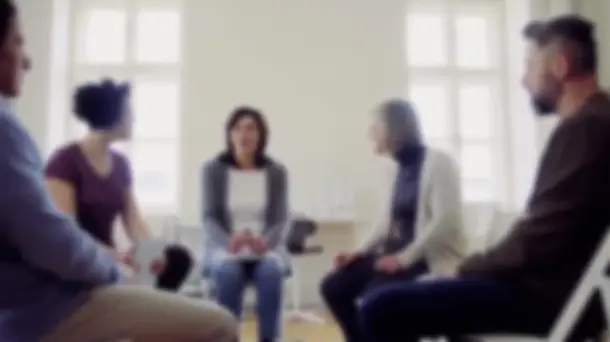Welcome to Narcotics Anonymous
What is our message? The message is that an addict, any addict, can stop using drugs, lose the desire to use, and find a new way to live. Our message is hope and the promise is freedom.

“When new members come to meetings, our sole interest is in their desire for freedom from active addiction and how we can be of help.”
It Works: How and Why, “Third Tradition”
Is NA for me?
This is a question every potential member must answer for themselves. Here are some recommended resources that may be helpful:
Need help for family or a friend?
NA meetings are run by and for addicts. If you're looking for help for a loved one, you can contact Narcotics Anonymous near you.
Subscribe to NAWS Emails
Sign up to receive Just for Today and SPAD daily meditation emails, as well as NAWS News, NAWS Updates, and more.
Never before have so many clean addicts, of their own choice and in free society, been able to meet where they please, to maintain their recovery in complete creative freedom.
Basic Text, “We Do Recover”
Recovery Quicklinks:
Service Quicklinks:
Narcotics Anonymous sprang from the Alcoholics Anonymous Program of the late 1940s, with meetings first emerging in the Los Angeles area of California, USA, in the early Fifties. The NA program started as a small US movement that has grown into one of the world's oldest and largest organizations of its type.
Today, Narcotics Anonymous is well established throughout much of the Americas, Western Europe, Australia, and New Zealand. Newly formed groups and NA communities are now scattered throughout the Indian subcontinent, Africa, East Asia, the Middle East, and Eastern Europe. Narcotics Anonymous books and information pamphlets are currently available in 49 languages.
Information About NA
Daily Meditations
Just for Today
June 30, 2025 |
Maintaining the foundation |
| Page 188 |
| “Our newly found faith serves as a firm foundation for courage in the future.“ |
| Basic Text, p. 96 |
| The foundation of our lives is what the rest of our lives is built upon. When we were using, that foundation affected everything we did. When we decided that recovery was important, that's where we began to put our energy. As a result, our whole lives changed. In order to maintain those new lives, we must maintain the foundation of those lives: our recovery program. As we stay clean and our lifestyles change, our priorities will also change. Work and school may become important because they improve the quality of our lives. And new relationships may bring excitement and mutual support. But we need to remember that our recovery program is the foundation upon which our new lives are built. Each day, we must renew our commitment to recovery, maintaining that as our top priority. |
| Just for Today: I want to continue enjoying the life I've found in recovery. Today, I will take steps to maintain my foundation. |
A Spiritual Principle a Day
June 30, 2025 |
Goodwill toward New Members |
| Page 187 |
| “One of the purest expressions of goodwill in NA is our heartfelt desire for the newcomer to have freedom.“ |
| Guiding Principles, Tradition One, “For Members” |
| In our first days of being clean (and for many of us a long time after), it's difficult for us to accept the goodwill of addicts in the Fellowship as real. We think, Why in the hell are all these people so happy to see me, like they know me or something? Some of us believe these NA people are trying to manipulate us in some way. Otherwise, why would they be so welcoming? We remain on red alert to find a crack in their game, but the goodwill of other humans can be hard to resist, especially when we haven't been offered it in a while. So, we keep coming back. Our journey toward freedom from active addiction begins. In NA, we do what others have done to stay clean, so we're encouraged to welcome those newer than we are. “At first, I found this uncomfortable because I didn't feel genuine approaching people,” a member shared. “But as I became more aware of the value of what had been so freely given to me, my desire to help new people grew. I sincerely felt hope for them, and I was truly excited to see them when they came back. I didn't think I was even capable of feeling like that.” For many of us, that shift is nothing short of a miracle. This newfound, heartfelt commitment to the well-being of other addicts represents freedom from the self-centeredness we've been trapped in for so long. We know the program is working when we realize that we have hope for others to succeed. |
| ——— ——— ——— ——— ——— |
| Whether or not I feel goodwill deep in my heart today, true hope for freedom–for others and myself–is there far more than it ever was before. I can act on that hope today no matter how I feel. |
Do you need help with a drug problem?
“If you’re new to NA or planning to go to a Narcotics Anonymous meeting for the first time, it might be nice to know a little bit about what happens in our meetings. The information here is meant to give you an understanding of what we do when we come together to share recovery…”
Subscribe to NAWS Emails
Sign up to receive NAWS Updates and NAWS News emails as well as Just for Today and SPAD daily emails.




